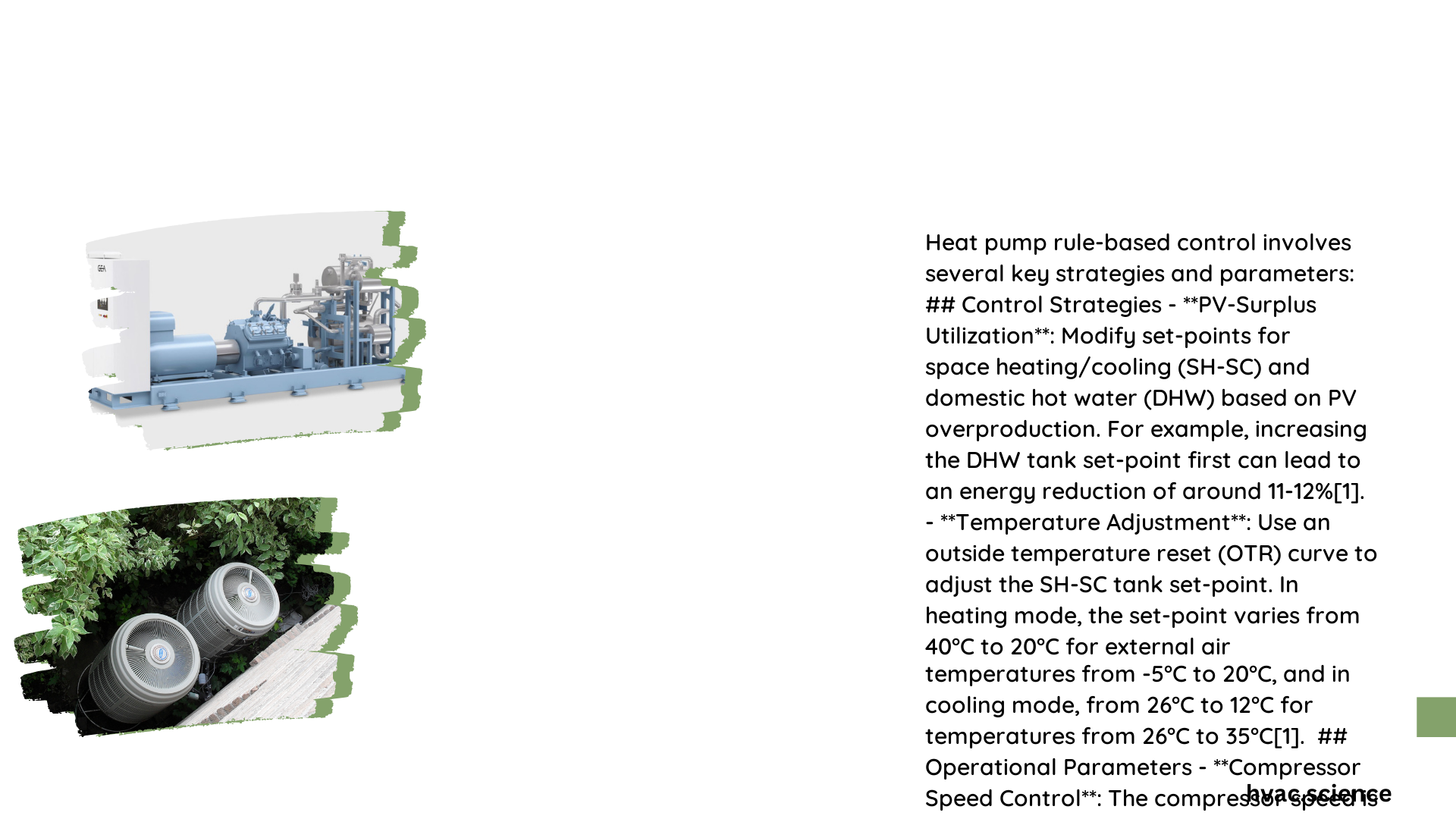Heat pump rule based control represents an intelligent approach to managing thermal systems, enabling precise temperature regulation and energy optimization through predefined algorithmic strategies. By leveraging conditional logic and real-time sensor data, these control mechanisms dynamically adjust heat pump operations to maximize efficiency, reduce energy consumption, and minimize grid dependency.
What Are the Fundamental Principles of Heat Pump Rule Based Control?
Rule based control for heat pumps involves sophisticated decision-making processes that respond to multiple environmental and operational parameters. These systems utilize an intricate network of sensors and predefined logic to make instantaneous adjustments.
Key Components of Rule Based Control
| Parameter | Function | Impact |
|---|---|---|
| Temperature Sensors | Measure indoor/outdoor temperatures | Trigger heating/cooling modes |
| Energy Meters | Track power consumption | Optimize energy utilization |
| Weather Forecasts | Predict environmental conditions | Anticipate system requirements |
How Do Rule Based Control Strategies Work?
Rule based control operates through a series of conditional statements:
- Trigger Conditions: Specific thresholds activate predetermined responses
- Decision Matrix: Complex algorithms evaluate multiple input parameters
- Adaptive Responses: Continuous system optimization based on real-time data
What Performance Benefits Can Be Achieved?

Heat pump rule based control delivers multiple advantages:
- Energy Efficiency Improvement
- Reduces unnecessary energy consumption
- Minimizes peak power demand
-
Enhances overall system performance
-
Cost Reduction
- Lower operational expenses
- Decreased grid dependency
- Potential integration with renewable energy sources
What Challenges Exist in Implementation?
Technical Limitations
- Complex algorithm development
- High initial investment
- Requirement for sophisticated sensor networks
Environmental Considerations
- Variability in outdoor temperatures
- Building thermal characteristics
- Regional climate differences
What Are Advanced Control Techniques?
Model Predictive Control (MPC)
MPC represents a more sophisticated approach compared to traditional rule based control:
- Predictive Capabilities: Anticipates future system requirements
- Multi-Objective Optimization: Balances multiple performance parameters
- Real-Time Adaptability: Continuous system refinement
Practical Implementation Strategies
Recommended Approach
- Conduct comprehensive system assessment
- Design granular rule sets
- Implement robust sensor infrastructure
- Develop adaptive algorithms
- Continuously monitor and refine performance
Technical Performance Metrics
| Metric | Potential Improvement |
|---|---|
| Energy Consumption | 11-15% Reduction |
| Grid Dependency | Up to 60% Decrease |
| Operational Efficiency | Enhanced Stability |
Conclusion
Heat pump rule based control represents a transformative technology in energy management, offering unprecedented precision and efficiency in thermal system operations.
